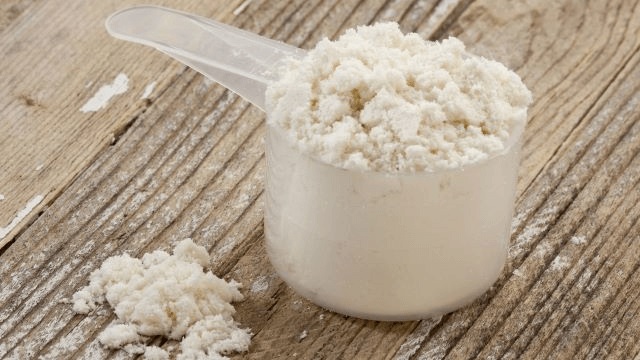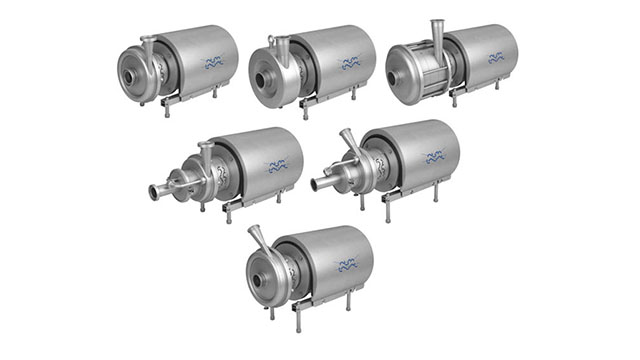Alfa Laval LKH pumps reduce energy costs, downtime and emissions
Alfa Laval LKH pumps reduce energy costs, downtime and emissions
A major dairy in Denmark agreed to serve as a testing facility for a joint Alfa Laval-Tetra Pak pump audit. Insights from the audit revealed huge potential for savings in energy, maintenance costs and carbon emissions in their whey filtration application. Data from the actual operating performance of the two pumps purchased from another manufacturer led to replacing them with energy-efficent Alfa Laval LKH pumps. The result: 20% in energy savings, more uptime, longer service intervals, reduced emissions and a better working environment.

After a day assessing five different pumps working in the dairy’s whey filtration application, Alfa Laval discovered that two pumps from another manufacturer were running 24/7 and delivering performance 20% below that which was specified. These pumps were running at only 50% efficiency, using half of the available power to move liquid and the other half causing vibration throughout the process line.
Time passed, and two major pump failures occurred before the dairy acted on the Alfa Laval pump audit insights. These breakdowns were due to broken pump shafts resulting from fatigue, vibration, and poor efficiency.
“Alfa Laval’s application specialist offered great technical know-how and showed us why it made sense to replace the old pumps,” said the dairy’s maintenance manager. “I wanted to be sure the new pumps would do the job, but the LKH pumps exceeded my expectations.”
20% annual savings in energy costs
Calculations showed that replacing the two old 110 kW pumps with Alfa Laval LKH pumps would reduce energy consumption by 44 kW/h, from 186 to 142 kW/h. Once the old pumps were replaced by Alfa Laval LKH pumps, annual energy savings alone amounted to nearly EUR 37,000.

Maintenance savings of EUR 24,000 a year
Every three months, the dairy required maintenance of the existing pumps due to poor efficiency, high power consumption, vibrations and other issues. Service called for a pump specialist and 24 hours of downtime per pump.
In contrast, the Alfa Laval LKH 70 pumps have now been running for more than a year without requiring service, providing 192 more hours of uptime due to high pump efficiency, longer-lasting wear parts, less energy wasted and no slow down due to vibrations. Plus no specialist is required to service the LKH pumps, providing the dairy with greater flexibility.
212 metric tons in CO2 emissions reductions
Improving the dairy’s sustainability profile was an added advantage of replacing the old pumps with Alfa Laval LKH pumps. The LKH pumps deliver carbon emissions reductions of 212 metric tons each year, which is roughly equivalent to reducing gasoline consumption by 90,000 litres (24,000 gallons) or taking 39 passenger cars off the roads.* What’s more, the dairy has the possibility to gain additional value by trading its carbon dioxide emission allowances.
Fast return on investment
In less than 16 months, the dairy realized return on investment for the Alfa Laval LKH pumps. This included the extra cost of rebuilding the system and buying a frequency converter to be able to run the LKH slightly faster than 50 Hz. Payback time did not include the trade-in or scrap value for the old pumps, which may have reduced payback time even further.
Better working environment
The Alfa Laval LKH pumps also improved the dairy’s working environment, making it safer and much more quiet with less vibration and fewer pressure peaks than with the old pumps.
A win-win partnership
Putting the Alfa Laval LKH pumps in place in the whey filtration lines has been a win-win partnership for the dairy, Tetra Pak and Alfa Laval.
* Based on EPA calculator = 525,000 miles and US DOT Federal Highway Admin ave @ 13,476 ave per vehicle per year
- Clean-label yoghurt: what you need to know 25/11/2020
- Tetra Pak research study reveals food safety-environment dilemma fostered by COVID-19 pandemic 17/11/2020
- Alfa Laval SRU Pump – a proven curd transfer solution 30/06/2021
- GlaxoSmithKline tanks clean profit 25/11/2020
- Tetra Pak accelerates action towards reduced littering and sustainable future 29/03/2021
- Tetra Pak launches its first complete processing line for white cheese 25/11/2020



